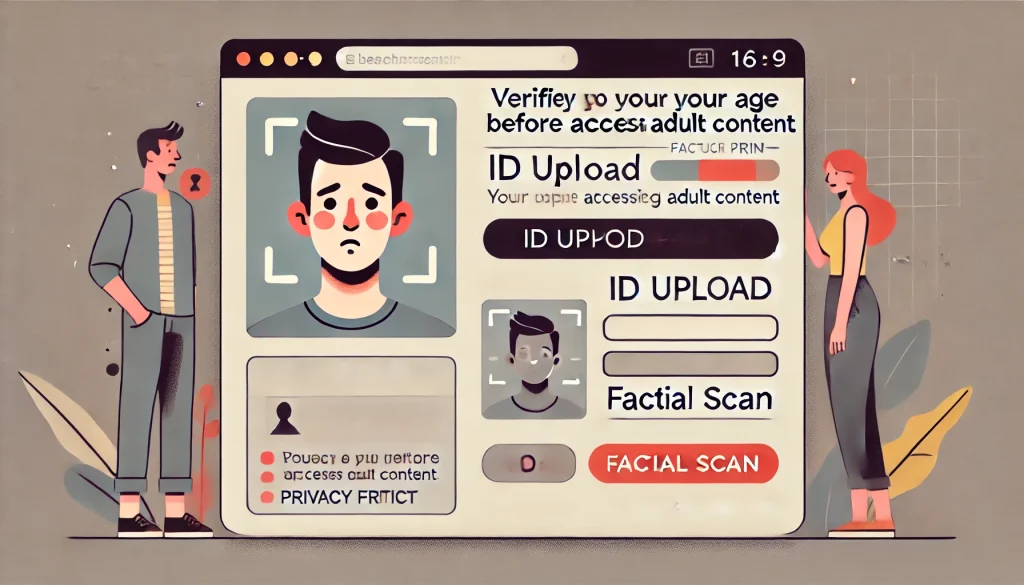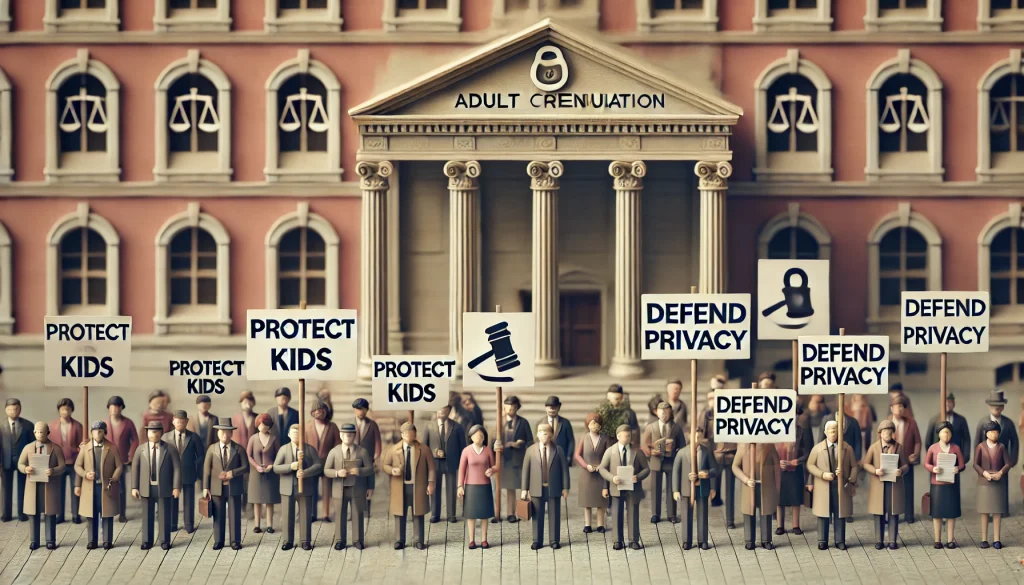In a new push to protect minors from adult-oriented materials, Australia is proposing a draft code that mandates age verification on websites hosting adult content or online gambling. While the initiative aims to shield underage users from explicit media, it has ignited debates around privacy, access, and the potential chilling effects on free speech. Below, we dissect the proposed regulations, examine how they might reshape the adult and gambling industries, and highlight concerns from tech experts, advocacy groups, and regulators.
1. The Proposed Draft Code: Key Points

1.1 Scope of Regulation
- Adult Content & Gambling: The code extends to sites featuring explicit sexual content or gambling services, forcing them to verify the age of any user accessing restricted material or sign-up forms.
- Uniform Standards: Instead of scattered guidelines, the code sets national requirements for age checks—mirroring similar moves in the UK or parts of the EU.
Potential: If ratified, any site failing to comply would face fines or site blocking by Australian authorities, reminiscent of previous attempts to filter online content.
1.2 Methods of Age Verification
- Third-Party Solutions: Website owners might use identity providers or digital ID checks (like driver’s license verification or a verified adult pass).
- Technology-Focused: The code references possible biometric approaches or AI-based scanning, though final details remain unsettled.
Outcome: The code aims for consistent methods across sites, so users don’t re-verify on every domain. However, it must address cross-site compatibility and user friction.
2. Balancing Privacy and Access
2.1 Privacy Concerns
- Data Retention: Storing personal info (like driver’s licenses or face scans) for adult site verification raises privacy alarms.
- Potential Breaches: A hack or leak of age verification data linking individuals to adult/gambling content could be extremely damaging.
Expert Insight: Kendra Salim, a cybersecurity analyst, warns, “Centralized identity checks for adult content create a honeypot of sensitive user data. A single breach can expose personal interests or gambling history.”
2.2 Access for Legitimate Users
- Tech Savviness: Some worry older adults or those lacking digital literacy might struggle with new identity checks, cutting them off from lawful content.
- Cost or Complexity: Third-party verification services might tack on fees or labyrinthine sign-up steps, frustrating users.
Public Reaction: Polls suggest support for protecting minors, but if age verification is cumbersome, the policy may face widespread non-compliance or workarounds via VPN/proxy usage.
3. Free Speech vs. Child Protection

3.1 Chilling Effects
- Self-Censorship: Content creators might limit what they publish, fearing legal ramifications or burdensome compliance.
- Adult Industry Impact: Smaller adult content producers could struggle with the overhead of integrating robust verification systems.
Advocacy Groups: Digital rights organizations highlight potential “slippery slope” expansions—today’s adult content restrictions might lead to broader content censorship or impetus to ban other “controversial” categories.
3.2 Industry Response
- Gambling Operators: Large betting sites often already do age checks for compliance, but new code might ramp up verification friction or require more frequent re-checks.
- Adult Platforms: Some major sites support age gating if it’s uniform across the industry, yet remain cautious about privacy obligations and liability if data is misused.
4. Perspectives from Tech Experts and Regulators
4.1 Tech Experts
- Implementation Complexity: Age verification solutions can require advanced cryptography, data tokenization, or real-time ID scans with face matching. Many question if the code accounts for smaller site owners with fewer resources.
- AI & Biometrics: Some solutions propose “AI-based face detection” to approximate user age, but false positives or negatives may hamper reliability, plus risk of algorithmic bias.
Cautious Optimism: “Technology can help but must embed robust privacy,” says Dr. Isabelle Wong, a digital ID researcher, “We can’t rely solely on private vendors storing user credentials or images indefinitely.”
4.2 Regulators & Gov’t Officials
- Child Safety Rationale: Proponents see this as a modern solution to shield minors from explicit content or gambling addictions. “Our priority is to ensure minors can’t access harmful sites,” declares one official in a parliamentary briefing.
- International Precedents: Australian regulators watch the UK’s evolving approach, where attempts at adult site verification faced repeated delays due to privacy concerns and feasibility issues. Officials vow to incorporate those lessons.
5. Challenges to Implementation
5.1 Over-Enforcement or Loopholes
- Geofencing: Local blocking may push users to VPN usage, negating age checks. Or smaller sites might ignore compliance entirely if they have no Aussie staff or hosting.
- Edge Cases: Non-adult sub-forums or partial gambling features might create ambiguous compliance scenarios.
Key: The code needs clarity about partial adult content or borderline scenarios to avoid confusion or over-censorship.
5.2 Minimal Impact Without Global Norms
- Cross-Border: Non-compliant overseas sites might remain accessible, limiting real child protection if only local or compliant sites adhere.
- Industry Flight: Some adult or gambling operators might relocate or refuse Aussie traffic to bypass stringent regulation, affecting local tax revenue or user access.
6. The Future of Age Verification and Content Regulation
- Ecosystem Partnerships: Aussie ISPs, ID providers, and content platforms might unify around standard verification methods (like eID or secure login flows), reducing repeated logins.
- AI Tools: Possibly advanced AI scanning user facial features for approximate age checks, though privacy watchers remain uneasy about facial recognition expansions.
- Ongoing Debate: As technology evolves, so do privacy demands. Future amendments may refine the code to ensure better data minimization or ephemeral token-based verification.
Conclusion
Australia’s draft code requiring age checks on adult and gambling sites could reshape how users access explicit material or place online bets—raising privacy, ethical, and free speech questions. While the plan aims to protect minors from harmful content, critics worry about potential data leaks, regulatory overreach, and a “chilling effect” on legitimate adult or gambling businesses. Ultimately, striking the right balance—offering robust child protection without infringing on adult freedoms or privacy—remains a delicate policy challenge. The next steps hinge on final code details, industry collaboration, and ensuring that the tools chosen for age verification preserve personal data integrity in a swiftly evolving digital landscape.









